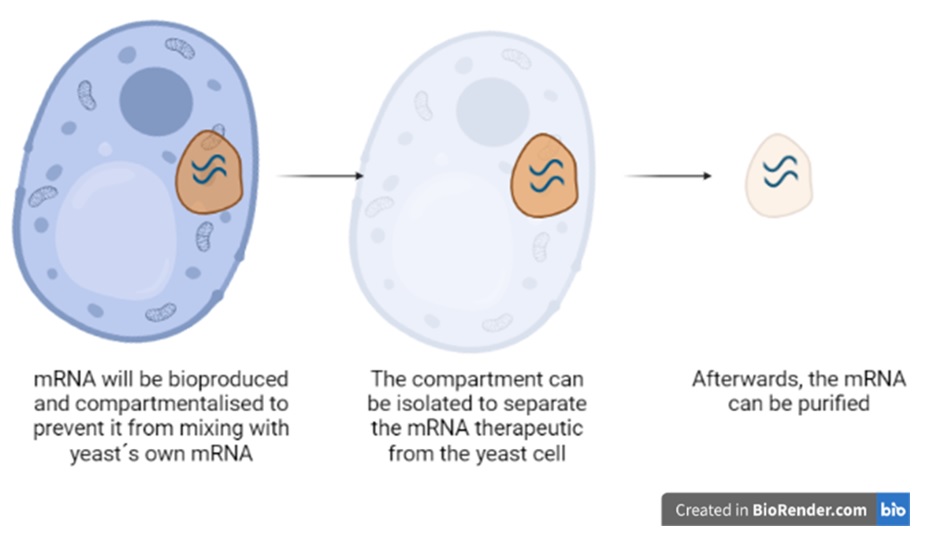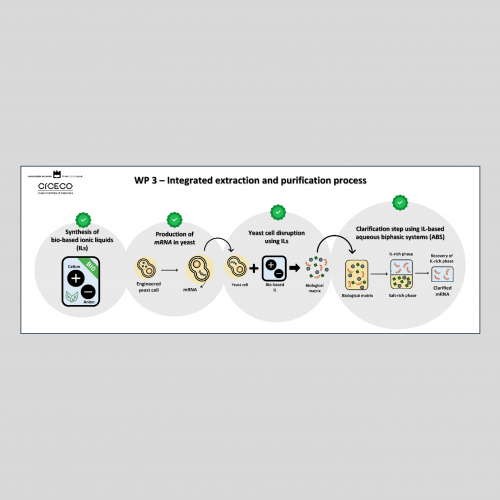About us
The mission of the Yscript consortium has been to lay the foundations for low-cost, large-scale production of mRNA drugs and vaccines by building a customised mRNA factory platform using yeast. Messenger RNA vaccines have decisively changed the fight against COVID-19, and mRNA is considered the basis for a wide range of therapeutic applications.
Currently, however, the only available technology for mRNA production is highly complex and expensive. These restrictions hinder large-scale mRNA production and are especially a problem for low-income countries. Yscript has been working with eight partners from five countries to develop a specific mRNA bioproduction and purification process in yeast that overcomes this obstacle. Low production costs and viable supply chains could thus enable mRNA-based therapeutics to effectively combat diseases and epidemics worldwide.
Countries
Partners
Years of
Duration
Mio Euro
Budget
mRNA bioproduction
mRNA is a natural molecule and a component of all life forms. Yeasts produce mRNA in a way that is very similar to humans. Yscript wants to use this property of yeast. It is easy to grow and regularly used to produce medicines (e.g. cough suppressants). Our decades of experience show us that medicines based on yeast are safe. However, there is not yet a process for producing yeast-based mRNA.

The biggest challenge in the production process is to separate the yeast's own mRNA from the therapeutic target mRNA. Therefore, our consortium will isolate the desired mRNA in a capsule within the yeast. The capsule containing the therapeutic mRNA can then be extracted. We will test whether large-scale production is possible for efficient manufacturing of mRNA therapeutics. As a next step, the consortium will extract and purify the desired mRNA. Finally, the biologically produced mRNA is subjected to a quality and purity check.
We assume that mRNA therapeutics from yeast will be cheaper and easier to produce than chemically produced mRNA, making them accessible to everyone. Moreover, the therapeutic efficacy of yeast-based RNA will at least approach that of chemically produced RNA.





































